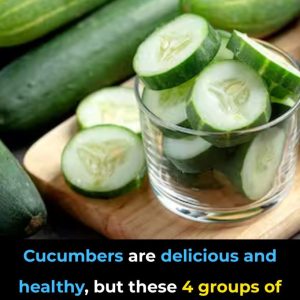
The thyroid is a small gland with a big job. It regulates your metabolism, influences energy levels, and keeps your hormones balanced. But certain everyday foods can quietly interfere with its function—especially if you’re managing conditions like hypothyroidism or Hashimoto’s disease.
Below, we’ll explore six common dietary culprits that may hinder thyroid health, and offer simple adjustments to help you support hormonal balance through better nutrition.
1. Soy and Its Derivatives

Soy-based foods are rich in isoflavones—plant compounds that may disrupt the thyroid’s ability to use iodine, a mineral essential for hormone production. While soy isn’t harmful to everyone, it can be particularly problematic for people with low iodine levels or those taking thyroid hormone therapy.
- Advice: If you’re prescribed levothyroxine, try to space out soy consumption by at least 3 to 4 hours after taking your medication.
- Watch for: Soy milk, tofu, edamame, miso, soy protein powders.
2. Raw Cruciferous Vegetables

Cruciferous veggies like kale and Brussels sprouts are packed with nutrients, but when eaten raw in large quantities, they may reduce iodine uptake due to natural goitrogens. This can make it harder for the thyroid to produce sufficient hormones.
- Advice: Cooking these vegetables—by steaming, roasting, or stir-frying—helps reduce their goitrogenic impact.
- Examples include: Raw cabbage, broccoli, cauliflower, kale.
3. Gluten-Containing Grains

For people with autoimmune thyroid disorders such as Hashimoto’s, gluten may worsen inflammation or trigger immune responses that further harm thyroid function. In some cases, gluten can also impair nutrient absorption, including selenium and zinc, which are vital for the thyroid.
- Advice: A gluten-free diet may offer symptom relief for those with known sensitivity or autoimmune thyroid conditions.
- Common sources: Wheat, barley, rye, and non-certified oats.
4. Refined Sugars

Excessive intake of sugar can lead to systemic inflammation, contribute to insulin resistance, and exacerbate common thyroid-related symptoms like fatigue, weight gain, and mood swings.
- Advice: Reduce consumption of added sugars and opt for naturally sweet alternatives like fresh fruit or a touch of honey (if tolerated).
- Common culprits: Soft drinks, packaged pastries, candy, sweetened cereals.
5. High-Sodium Processed Foods
People with underactive thyroid function are at higher risk for hypertension and fluid retention. Since most processed foods are high in sodium, regularly eating them can further stress the cardiovascular system.
Advice: Limit packaged and ready-made meals. Choose low-sodium options and cook at home when possible.
High-sodium examples: Canned soups, deli meats, frozen entrees, snack foods.
6. Coffee Taken Too Soon After Medication

A cup of coffee first thing in the morning might feel essential, but if you take thyroid medication, timing matters. Caffeine can significantly interfere with the absorption of levothyroxine, reducing its effectiveness.
- Advice: Wait at least 30–60 minutes after taking your thyroid pill before drinking coffee.
- Applies to: Espresso, instant coffee, cold brew, lattes, and other caffeinated drinks.
Foods That Support Thyroid Health

Instead of focusing only on what to avoid, it’s equally important to nourish your thyroid with supportive nutrients:
- Omega-3-rich fatty fish: salmon, mackerel, sardines
- Selenium-packed foods: Brazil nuts, eggs
- Iodine sources: seaweed (in moderation)
- Antioxidant-rich fruits: blueberries, apples, pomegranate
- Zinc and magnesium sources: pumpkin seeds, legumes, leafy greens




